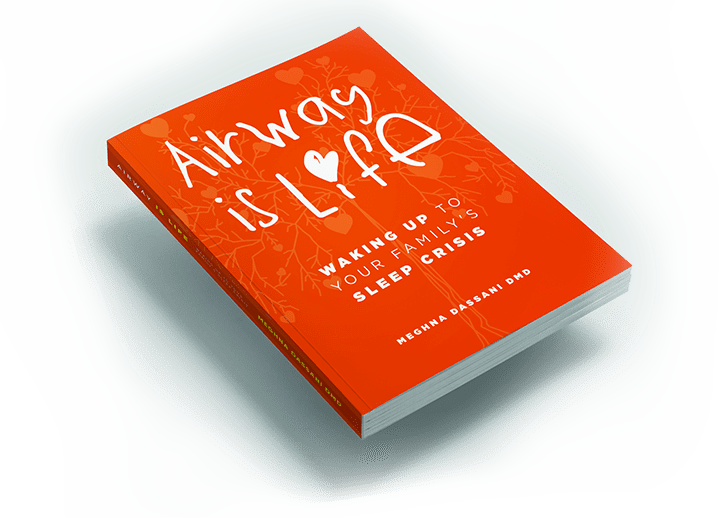How to identify and treat sleep apnea in infants
Sleep apnea is a condition characterized by frequent pauses in breathing during sleep. It’s most commonly associated with adults. But sleep apnea can also affect young children and infants. The number of infants who have sleep apnea is unknown. But an estimated 1-5% of children have the condition.
Sleep apnea in infants can be a cause for parental concern, as it can lead to various health issues if left untreated. But parents don’t need to worry. Once you know how to identify the signs of sleep apnea in your little ones, you can take the necessary steps to get them diagnosed and treated.
But first…
What causes sleep apnea in infants?
Sleep apnea in infants can have various underlying causes. Some common contributing factors include…
Structural abnormalities
Certain anatomical issues can obstruct normal breathing during sleep. These include…
- A small jaw
- Large tongue
- Cleft palate
- Smaller upper airway or larynx
Premature birth
Infants born prematurely may have underdeveloped respiratory systems. And this can increase their susceptibility to sleep apnea.
Secondhand smoke
Infants and children may develop sleep apnea from being exposed to secondhand smoke.
Neurological conditions
Disorders like Down syndrome, cerebral palsy, and congenital central hypoventilation syndrome (CCHS) can affect the brain’s control over breathing and contribute to sleep apnea.
How to identify sleep apnea in infants
Identifying sleep apnea in infants can be challenging since babies are unable to communicate their symptoms. But parents can watch for several things that may indicate the presence of sleep apnea…
Loud or persistent snoring
Infants often cry or squirm in their cribs and they may make other noises as they sleep. But infants, up to three months old, rarely snore. So if you hear what sounds like snoring in your infant, and the snoring continues night after night, you should talk to your healthcare provider.
Pauses in breathing
Observe your baby while they sleep. Do you notice frequent pauses in their breathing, followed by gasping or choking sounds? These symptoms could indicate sleep apnea.
Restless sleep
Infants with sleep apnea often have restless sleep, accompanied by tossing and turning or frequently changing positions.
Poor weight gain
Sleep apnea can interfere with an infant’s ability to feed properly. And this can lead to poor weight gain or slow growth.
Excessive daytime sleepiness
If your infant appears excessively sleepy during the day, despite having seemingly slept throughout the night, it could be due to interrupted sleep caused by sleep apnea.
These signs alone do not confirm the presence of sleep apnea in your infant. But they should prompt further evaluation by a healthcare professional.
Other signs to watch out for include…
- Recurring respiratory infections
- Mouth breathing
- Sweating during sleep
- Difficulty swallowing
- Developmental delays
Seeking medical evaluation for your infant
If you suspect your infant has sleep apnea, consult a healthcare professional for a comprehensive evaluation. The healthcare provider will conduct a thorough examination and may recommend additional tests to diagnose your little one accurately. These tests may include…
Overnight sleep study (polysomnography)
Polysomnography can help identify the presence and severity of sleep apnea. It records various body functions during sleep. These include…
- Brain activity
- Heart rate
- Breathing patterns
- Oxygen levels.
Airway endoscopy
An airway endoscopy is also known as a laryngoscopy or bronchoscopy. It’s a diagnostic tool that can assess the upper airway in infants suspected to have sleep apnea. During this test, doctors use a flexible tube with a camera attached to examine babies’ airways.
How to treat sleep apnea in infants
If you discover your infant has sleep apnea, you may feel scared, confused, upset, or all of the above. But once you have a diagnosis, you have several treatment options to alleviate your baby’s symptoms.
The treatment options for sleep apnea in infants depend on the underlying cause and severity of the condition. Your healthcare provider may recommend the following options:
Continuous positive airway pressure (CPAP) therapy
CPAP therapy involves wearing a mask over the nose or both the nose and mouth, which delivers a constant flow of air to keep the airways open during sleep. CPAP is often effective in managing sleep apnea in infants.
Surgical interventions
In some instances, surgical procedures may be considered to remove enlarged adenoids or tonsils, which can contribute to airway obstruction. However, surgical options are typically reserved for severe cases or when other treatments have been unsuccessful.
Lifestyle modifications
Making changes to your baby’s sleep environment and sleep routine can help manage their sleep apnea symptoms. These changes may include…
- Elevating the head of the crib to ensure a comfortable and safe sleeping position
- Maintaining a consistent sleep schedule
- Creating a quiet and soothing sleep environment
Identifying and treating sleep apnea in babies requires careful observation, prompt medical evaluation, and appropriate interventions. Seek professional advice if you notice signs of sleep apnea in your baby. Early detection and intervention help ensure that your little one receives the necessary treatment so they can get the restful and uninterrupted sleep they need.
Dr. Meghna Dassani has practiced dentistry for over two decades and is passionate about the role dentists play in whole-body health. You can learn more at her website: MeghnaDassani.com.
Healthy Sleep Revolution Podcast
Snoring? Tired all day? Trouble focusing?
So many think these symptoms are common in kids and adults when tired. Join us as we debunk some of these common myths and put the spotlight on Sleep Apnea. Discover what constitutes healthy sleep and how we can help ourselves and our kids get the best sleep ever.


